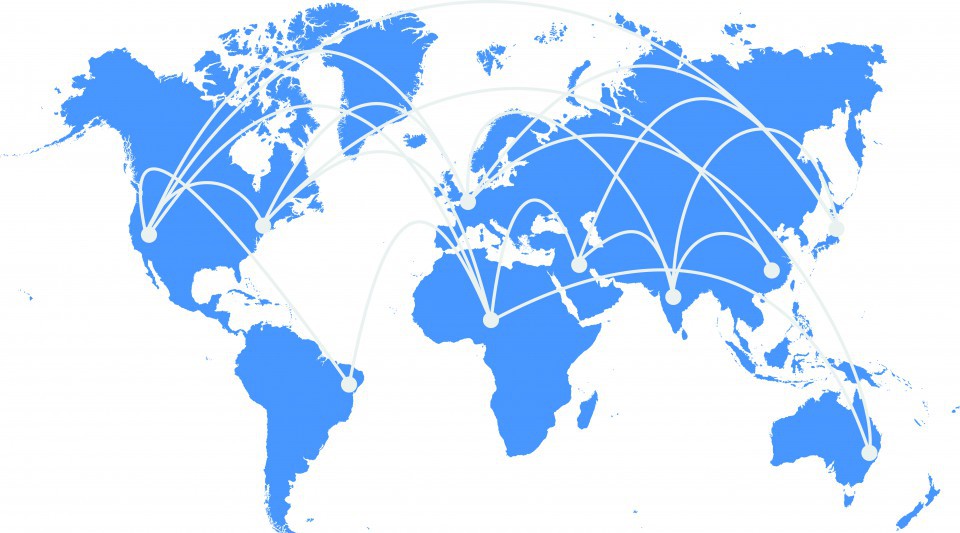Groundhog Brexit is driving everyone slightly mad. But it’s also an unparalleled masterclass on the “do’s and don’ts” of leadership and democracy.
As in the 1993 film, Groundhog Day, Brexit Britain seems to be stuck in a time warp, reliving the same debates, endlessly making the same demands, day after day after day.
In the movie, the character played by the marvellous Bill Murray finally discovers love and happiness, thereby breaking free of the dreadful time loop he’s entrapped in.
But with less than 50 days to B-day, the Brexit version lacks such light at the end of the tunnel.
Call it Brexit shambles, Brexit tragedy or Brexit distraction. Call it the “will of the people”. Whatever the description, Britain’s rupture with the EU is beginning to take its toll on just about everyone.
Patience is running out on this side of the Channel, nerves are fraying on the other. The rest of the world can’t believe the shenanigans of a once-respected British political class.
But for a minute – just for a minute – let’s stop obsessing over the depressing “breaking news” bulletins from Westminster and Number 10, the investors and jobs leaving Britain and British politicians and former government officials grabbing lucrative post-Brexit jobs and speaking engagements.
Instead, let’s take the long view.
As it unfolds, slowly and painfully, Brexit Britain is clearly providing invaluable lessons on the reach and power of the European Union.
Having seen the million uncertainties ahead as Britain tries to break free, most Europeans aren’t too keen on their own country embarking on such a perilous journey.
Most Eurosceptic and Far Right parties have abandoned talk of leaving the EU
As such, most Eurosceptic and Far Right parties have abandoned talk of leaving the EU. Seeing the Brexit drama developing, their focus has switched to capturing power to try and change Europe from within. This will be Europe’s true challenge in the years ahead.
But Brexit is doing more than just reshaping the European narrative ahead of European Parliament elections and the selection of new European Commissioners. It is also a closely-observed global cautionary tale.
Brexit is providing political scientists, sociologists, governance experts and psychologists across the world with a powerful, living, daily masterclass on leadership, governance and democracy in the 21st century.
Here’s a short and very incomplete list of six lessons that Brexit has taught us:
First, it’s time to start assessing the quality of democracy, not just its visible components. Holding elections (or in this case a ‘people’s vote’), having a functioning parliament and separating the executive from the judiciary used to be enough to join the league of democratic nations. No longer. Brexit is vivid proof that the emphasis – especially in established democracies – must now shift to the standard and quality of democracy, democratic institutions and those who run them.
Second, let’s practice what we preach. Europeans are quick to teach the world about democracy and the rule of law. The rules on good governance that underpin European judgement on African, Asian and Latin American governments and politicians are all fine and dandy. But Brexit might not have happened if these standards were applied just as rigorously at home as they are abroad.
Third, the EU can’t ‘stay out’ of national political debates. It makes little sense to give ‘Brussels’ the power to assess member states’ economic performance, fiscal conduct and rule of law implementation while declaring that the EU cannot ‘meddle’ in the domestic political debates that determine a country’s political future. Surely, a key Brexit lesson must be that the conversation on Europe cannot be left exclusively to national politicians?
Brexit is proof that experts matter and that while facts and figures may be boring, they are ultimately important
Fourth, read any governance manual and it’s clear that leadership in the 21st century requires digital literacy but also skills such as empathy, critical thinking, creativity, collaboration and flexibility. Brexit is a vivid showcase of the nightmare that can engulf a nation when politicians possess none of these qualities and when they shamelessly put party before country, endlessly referring to an imaginary past rather than preparing for a very real, risky future.
Fifth, the devil (really) is in the detail. Brexit is proof that experts matter and that while facts and figures may be boring, they are ultimately important. “Brexit is Brexit” and other similar banalities may sound great for a few days but once the euphoria of ‘independence’ wears off, it’s important to start looking at the small print. Failure to do so only means that such small mundane details as Gibraltar, the future of Scotland and Northern Ireland suddenly become rather big and difficult to manage.
Sixth, jokes are great but jobs are better. British humour has had us rolling in the aisles for decades. All those hilarious television shows, the perfect witty put-downs, the wink and the nudge, the right pun at the right moment. Such fun. Everyone giggling as politicians vie with comedians to shrug off serious concerns with yet another joke. But Brexit is sad. And now the joke may be on Britain.
Many more lessons, some serious, some less so, will be learnt in the days and weeks ahead. British politicians may still come to their senses. Or not.
Brexit was once derided as a soap opera. It has now become an important global manual on the quality of governance.
